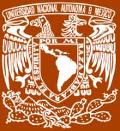|
Boletín de la Sociedad Geológica Mexicana Volumen 75, núm. 2, A100423, 2023 http://dx.doi.org/10.18268/BSGM2023v75n2a100423
|
 |
Importancia de la geoética en las carreras de ingeniería geológica y geociencias: La experiencia latinoamericana
Importance of geoethics in the geological engineering and geosciences careers: The Latin American experience
Sandra Villacorta1,*, Luisa Pinto2,3, Kátia Leite Mansur4
1 Facultad de Ingeniería, Tecnología de la información y Medio ambiente, Universidad Charles Darwin, Australia.
2 Departamento de Geología, Universidad de Chile, Chile.
3 Grupo en Geoética de la Sociedad Geológica, Chile.
4 Membro da Comissão de Geoética da Sociedade Brasileira de Geologia, Brasil.
* Autor para correspondencia:(S. Villacorta) This email address is being protected from spambots. You need JavaScript enabled to view it.
Cómo citar este artículo:
Villacorta, S., Pinto, L., Mansur, K.L., 2023, Importancia de la geoética en las carreras de ingeniería geológica y geociencias: La experiencia latinoamericana: Boletín de la Sociedad Geológica Mexicana, 75 (2), A100423. http://dx.doi.org/10.18268/BSGM2023v75n2a100423
Manuscrito recibido: 6 de Marzo de 2023; Manuscrito corregido: 8 de Abril de 2023; Manuscrito aceptado: 11 de Abril de 2023.
ABSTRACT
This paper explores the concept of geoethics and its application in the professional practice of geosciences. Geoethics involves research and reflection on the values and principles that underpin appropriate behaviours wherever human actions interact with the earth system. It advocates for solutions to the problems of human-Earth interaction and contributes to protecting humanity and citizens in the professional field and everyday life. After evaluating the common geoethical problem in Latin America, provide examples from three South American countries: Peru, Chile and Brazil. The synergistic action of the geoscientific community in promoting a geoethical framework is discussed. The need for transparent, quantitative, rational and repeatable analyses is highlighted to ensure high professionalism in conducting studies. The importance of providing role models for young and beginning geoscientists and correctly disseminating geoscientific information to the public is further emphasized. The ability to communicate effectively is a fundamental requirement to train engineers, geologists and geoscientists capable of addressing global issues such as environmental management, geological hazards, and energy transition. Additionally, the implementation of geoethics in geological engineering and geoscience careers is proposed to promote social and environmental responsibility among young graduates and scientists starting their careers to prevent unethical professional practices and improve the visibility of geosciences and its benefits to society. The article concludes by calling for the involvement of geoscientists in public policies for the protection of geological heritage and the promotion of geoethical values, as well as the creation of a professional group to develop and promote geoscience didactics to improve educational quality in the field.
Keywords: geoethics, professional development, geology, engineering geology, geosciences.

